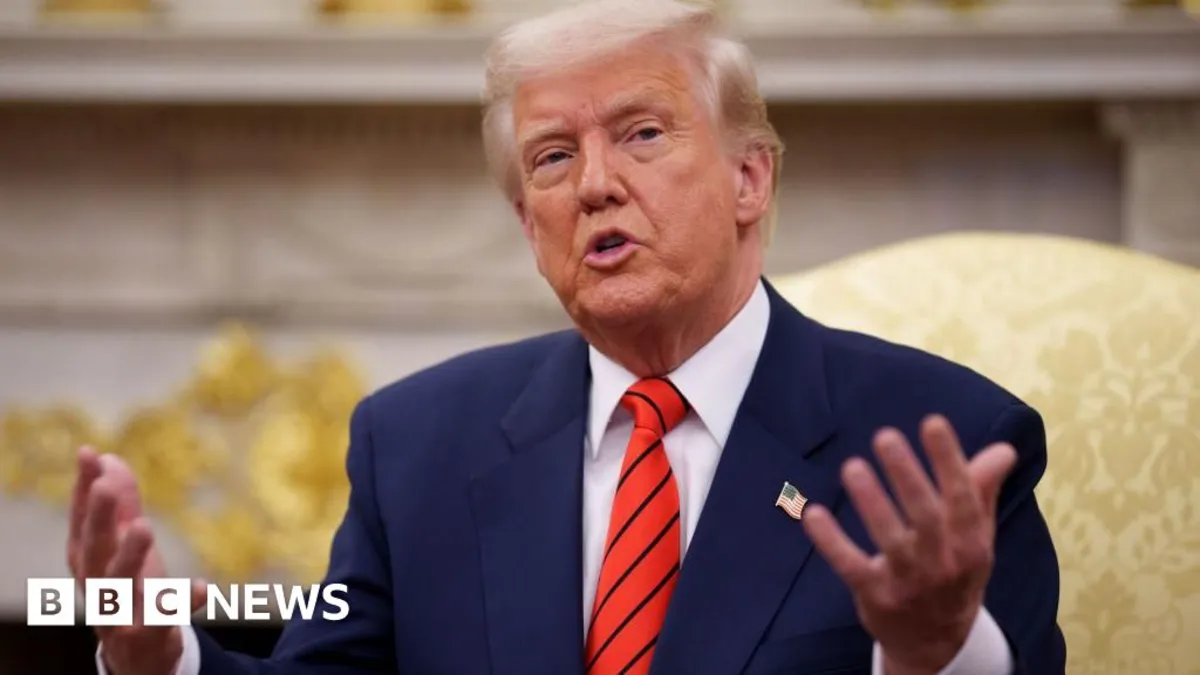
US President Donald Trump has expressed optimism regarding recent discussions with Russian President Vladimir Putin about the proposed ceasefire deal in Ukraine, labeling the talks as both "good" and "productive." This statement follows a meeting between Putin and US envoy Steve Witkoff that took place in Moscow on Thursday evening. During this meeting, the two leaders exchanged crucial information and conveyed a sense of cautious optimism about the ongoing peace process, as confirmed by the Kremlin.
In a post on his social media platform Truth Social on Friday, Trump remarked that the discussions present a significant opportunity for bringing an end to what he described as a "horrible, bloody war." However, Ukrainian President Volodymyr Zelensky countered this sentiment, asserting that Putin’s actions indicate Russia's intention to prolong the conflict rather than pursue a genuine ceasefire.
Zelensky articulated his concerns through a series of posts on X, stating that Putin cannot afford to withdraw from the war as it would leave him with nothing. He accused the Russian leader of sabotaging diplomatic efforts by imposing excessively difficult and unacceptable conditions prior to any ceasefire agreement. Zelensky emphasized that Putin's approach would lead to prolonged negotiations that waste precious time while Russian forces continue their offensive.
In his daily address preceding these comments, Zelensky noted that Putin was likely preparing to reject any ceasefire, clarifying that the Russian leader typically avoids outright refusals. Earlier this week, Ukraine had agreed to the US-proposed ceasefire, a proposal that Russia has yet to endorse.
Zelensky urged those with influence over Russia, particularly the United States, to take decisive actions that could assist in halting the war. He stressed that Putin would not independently cease hostilities, asserting that the Russian president is misrepresenting the true state of affairs on the battlefield and the condition of Russia's economy. Zelensky accused Putin of undermining diplomatic efforts at every turn.
Despite the contrasting viewpoints, the White House remains hopeful, claiming that the two parties have never been closer to achieving peace. Speaking to reporters, White House Press Secretary Karoline Leavitt highlighted the productive nature of the talks between Putin and Witkoff. She noted that Trump has been applying pressure on Russia to make the right choices regarding the conflict.
Trump's social media post also included a strong appeal for Putin to protect the lives of Ukrainian soldiers, whom he described as being surrounded by Russian forces. He characterized the potential outcome as a "horrible massacre not seen since World War Two." These comments came after Putin claimed that Ukrainian troops in Kursk were isolated and attempting to flee, as Russia intensified its efforts to reclaim territories invaded by Ukraine last year. However, Ukraine's armed forces have vehemently denied these encirclement claims, labeling them as false and fabricated.
In response to Trump's appeal, Putin assured that any Ukrainian soldiers who surrender would be treated with dignity, adhering to international law and the laws of the Russian Federation. Meanwhile, leaders from the G7 nations convened in Quebec, where Canadian Foreign Minister Mélanie Joly confirmed that all members supported the US-proposed ceasefire, which has received backing from Ukraine.
Joly stated that the focus is now on assessing Russia's reactions, emphasizing that the next steps depend on Russia's willingness to engage constructively. UK Foreign Secretary David Lammy, present at the meeting, reiterated the collective call from G7 members for a ceasefire without preconditions. Following the discussions, US Secretary of State Marco Rubio underscored that US foreign policy decisions would not be swayed by social media statements or press conferences, asserting that negotiations remain the only viable path to end the conflict.